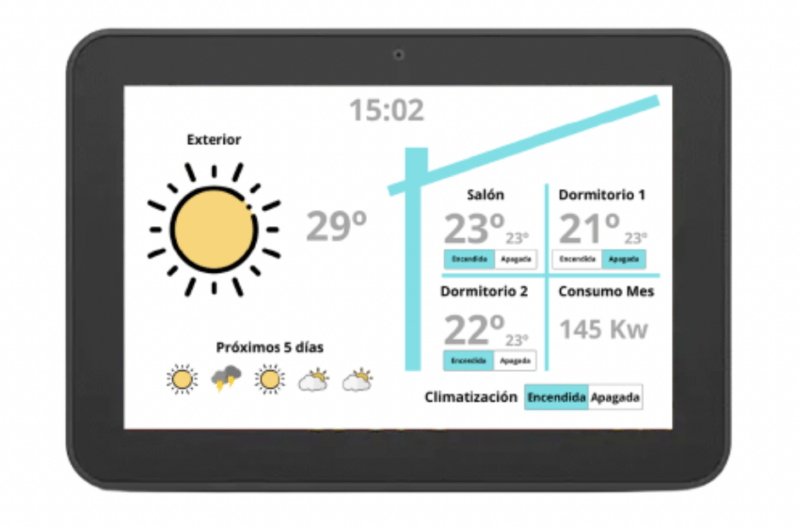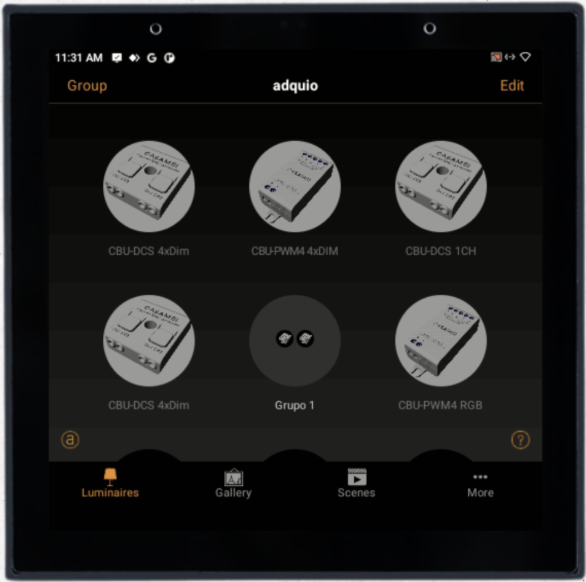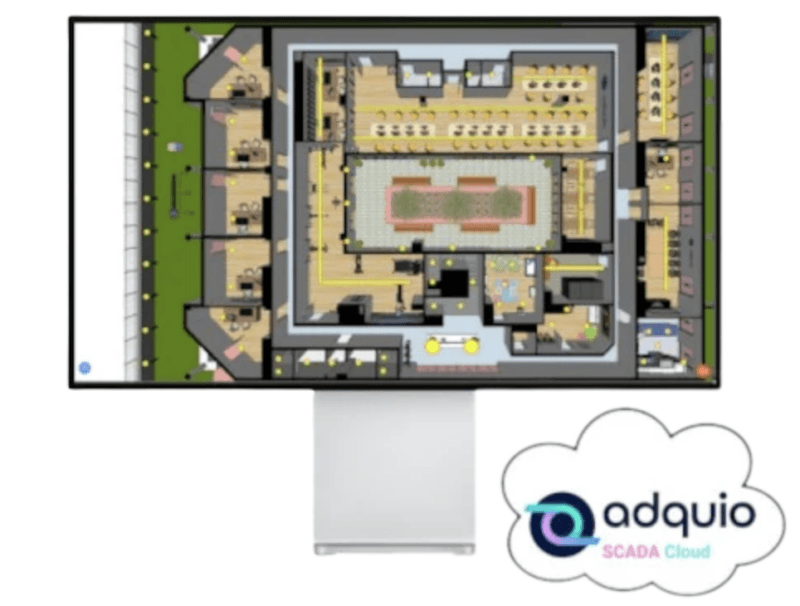
Adquio Mini
Programmable controller, actuator and datalogger
- Power supply: 24V DC.
- Protection against voltage reversal
- 4 rs485 ports
- 1 Ethernet port
- 1 USB dongle (32 GB inserted from factory)
- 2.4 Ghz wifi AP integrated.
Similar products

Data and services
Adquio Screen 8
Touch screen designed to work continuously without interruptions 24/7. Due to its characteristics it is perfect to act as HMI, and as support for the Casambi control app.
NEURONAL INNOVATION CONTROL S.L.

Data and services
Adquio Control Screen 32″
Touch screen designed to work continuously without interruptions 24/7. Due to its characteristics, it is perfect to act as an HMI, and as control screen for Casambi facilities.
NEURONAL INNOVATION CONTROL S.L.

Data and services
Adquio Wall Screen 4
Touch screen designed to work continuously without interruptions 24/7. Due to its characteristics it is perfect to act as HMI, and as support for the Casambi control app. It is installed in the standard space of a European switch.
NEURONAL INNOVATION CONTROL S.L.

Data and services
Adquio SCADA Cloud
Adquio SCADA Cloud is a web-based cloud platform that allows you to perform complete control of your installation.
NEURONAL INNOVATION CONTROL S.L.

